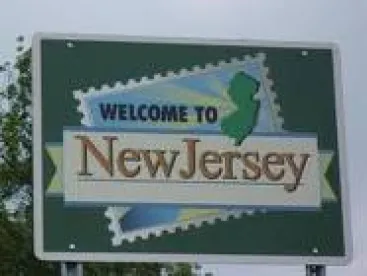A recent opinion from the District of New Jersey is a cautionary tale for patent practitioners regarding conduct during patent prosecution that can be framed as bad faith. This can become an expensive misstep during subsequent litigation. In Howmedica Osteonics Corp. v. Zimmer, Inc. et al., 2-05-cv-00897, the court granteddefendant Zimmer, Inc.’s (“Zimmer”) motion for over $13 million in attorney fees and costs under 35 U.S.C. § 285 over plaintiff Howmedica Osteonics Corp.’s (“Howmedica”) argument that its actions did not support a finding of an exceptional case.
By way of background, Howmedica brought this action against Zimmer in 2005, alleging infringement of four of Howmedica’s patents that disclose processes for irradiating and heating polymers designed to extend the usable life of medical implants. On August 19, 2008 the court granted Zimmer’s motion for partial summary judgement of invalidity with regard to three of the patents. Zimmer also obtained rejections of all claims of the final patent, U.S. Patent No. 6,818,020 (“the ’020 patent”) through inter partes reexamination at the U.S. Patent and Trademark Office (“USPTO”). On appeal, the Federal Circuit confirmed these rejections.
Zimmer then moved under 35 U.S.C. § 285 for fees, costs, expert costs, and prejudgment interest that accrued during its decade long defense against Howmedica’s claims. Under the Supreme Court’s guidance in Octane Fitness, Section 285 allows a court in “exceptional cases” to award reasonable attorney feed to the prevailing party. Exceptionality under this standard is determined on a “case-by-case” basis considering a totality of the circumstances, and awards may be made where there is subjective bad faith, exceptionally meritless claims, or if a party has engaged in misconduct, even if that misconduct may not, in itself, be sanctionable.
Zimmer claimed this case was exceptional because Howmedica (1) engaged in inequitable conduct before the USPTO, (2) engaged in litigation misconduct, and (3) breached its disclosure duties before the USPTO during the inter partes reexamination. As to the first point, during prosecution of the asserted patents, Howmedica selectively disclosed test data to the Examiner and was evasive in answering the Examiner’s questions. Howmedica also submitted affidavits from a Dr. Wang which contained representations that directly contradicted previous publications made by him, which were not disclosed. Dr. Wang also failed to disclose that he was employed by the patent applicant at the time, and was not an independent expert.
In addition, during the case, Zimmer advanced a reference known as “Lue.” Instead of challenging invalidity by the Lue reference, Howmedica adopted a “completely new and contradictory position.” By doing so, Howmedica tacitly acknowledged that it knew what “defendant, [and] the Federal Circuit … ultimately agreed upon: the Lue reference invalidated their patents.”
The court also pointed to the fact that, during reexamination of the ’020 patent, Howmedica obtained a declaration by a Dr. Streicher, author of one of the biggest hurdles to validity aside from the Lue reference. This declaration contradicted the prior art reference in a way the court found to be implausible and “objectively unreasonable.”
Taken as a whole, the court found that this case was exceptional and awarded Zimmer its requested reasonable attorney fees and prejudgment interest. While the court based its finding of exceptionality in this case on the totality of the circumstances, practitioners and patent owners should be mindful of their obligations to play fair during all stages of a patent’s life. Pushing the reasonable boundaries like Howmedica was held to do here resulted in a steep price: it will pay a fee award of over $13 million in fees and costs.





 />i
/>i
